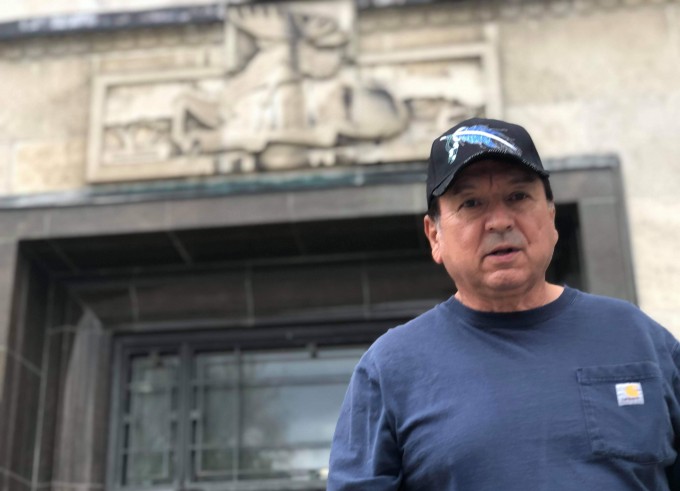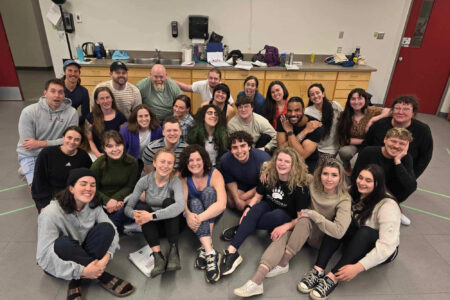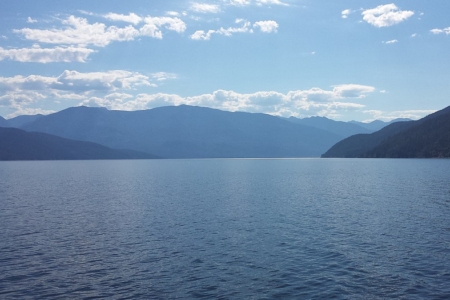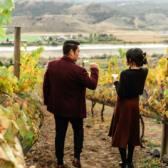Time for celebrating after Supreme Court rules in favour of American Indigenous man's right to hunt in Canada
Rodney Cawston, Chairman of the Confederated Tribes of the Colville Reservation (CCT) and the Sinixt (sn̓ ʕaýckstx) Confederacy, said Friday was a day for celebrating after the Supreme Court of Canada ruled in favour of Rick Desautel’s protected right to hunt in British Columbia given his people’s historic ties to the region.
In ruling in favour of Desautel, the Supreme Court of Canada dismissed the Crown’s final appeal in the R v. Desautel hunting case.
“Today’s decision reaffirms that the snʕāyckst are not extinct,” Cawston said in a media release.
“Since our people were dispossessed from our traditional homelands, we have struggled to retain our identity because of all the attempts to control our lives through laws not of our own making.”
“This decision will allow our people access to the natural world that our ancestors and Elders told us about,” Cawston added.
“Rick Desautel harvested an elk which is one of the staple foods of our existence for ceremonial purposes. His ethical and ceremonial respect of our traditional foods exemplifies the connection our people still need for our cultural survival.”
Desautel, an American citizen and member of the Lakes Tribe of the Colville Confederated Tribes and lives on reserve in Washington State, shot and killed an elk without a hunting license in the Arrow Lakes region near Castlegar on October 2010.
Desautel was charged with hunting without a license and hunting big game while not being a resident of BC, after admitting that he shot the elk.
But Desautel argued that he was exercising his Aboriginal right to hunt in the traditional territory of his Sinixt ancestors under section 35 of the Constitution Act, 1982 (Canadian Constitution).
He claimed that the Lakes Tribe is a successor group to the Sinixt people whose traditional territory included an area in what is now British Columbia — the place where he shot the elk was within this territory.
The central question for the Supreme Court was whether people who are not Canadian citizens, and who do not reside in Canada, can exercise an Aboriginal right that is protected under the Canadian Constitution.
“Dispossession is not over, and it is not history,” Cawston said.
“Today, our people look forward to rejoining our relatives in Canada to reunite our confederacy and collectively address land and other issues that impact our homelands.”
The case revolved around the definition of “Aboriginal peoples of Canada” found in Section 35 of the Canadian Constitution, which recognizes and affirms existing Aboriginal and treaty rights.
This was the first time the Court had interpreted the words “Aboriginal peoples of Canada”.
The majority of the judges of the Supreme Court said a fundamental purpose of section 35 was to recognize the prior occupation of Canada by organized, autonomous Aboriginal societies.
The majority said that “Aboriginal peoples of Canada” means the modern-day successors of Aboriginal societies that occupied Canadian territory at the time of European contact, even if such societies are now located outside Canada. Excluding Aboriginal peoples who moved or were forced to move, or whose territory was divided by a border, would add to the injustice of colonialism.
They concluded that groups whose members are neither citizens nor residents of Canada can be considered part of the “Aboriginal peoples of Canada” and claim an Aboriginal right under section 35.
Like other sn̓ ʕay̓ckstx people resident in the United States, Desautel is currently unable to cross the border to sn̓ ʕay̓ckstx territory in Canada.
However, Desautel did travel to Kettle Falls in Washington State in the southern portion of the territory to receive today’s judgment.
“I am honored to be standing here on the rocks where our ancestors fished for thousands of years until the Grand Coulee dam blocked the salmon’s annual journey,” Desautel said.
“I am at the end of my own journey through the court system, and at the beginning of the new journey of reconciliation for our people.”
“I am grateful to the ancestors for their guidance and in helping our rights, traditions and natural laws prevail,” Desautel added. look forward to the hard work ahead together with the people of British Columbia.”

























